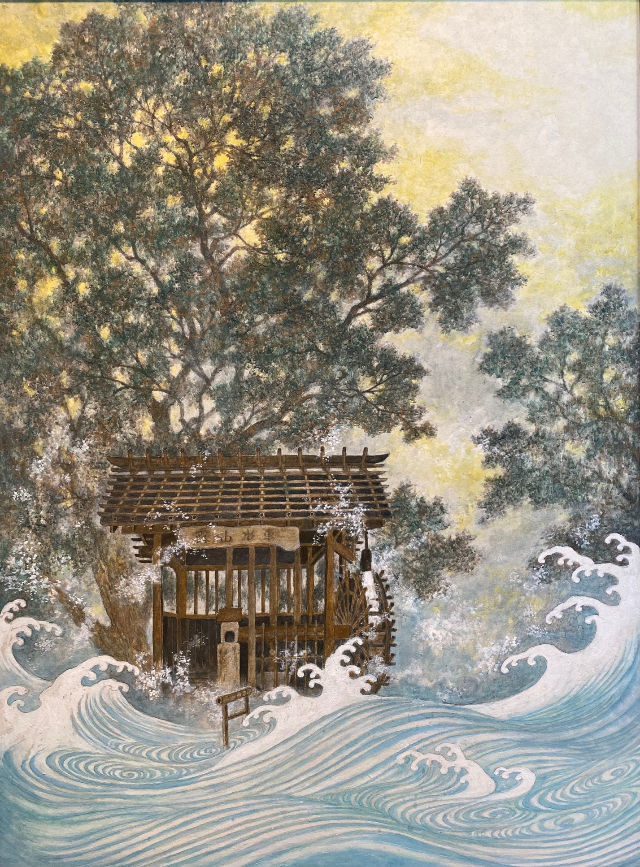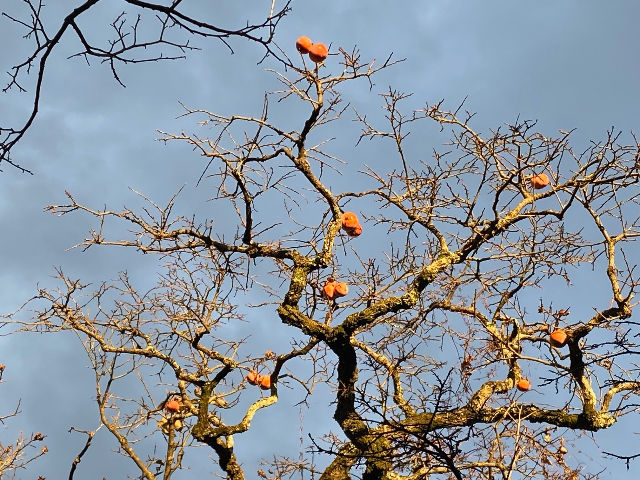PULLING THE HEARTSTRINGS
- Rebecca Otowa
- Feb 20, 2020
- 4 min read
The other day I went to a local concert. On the program were two well-known pieces – Francesco Sartor’s “Time to Say Goodbye” and the Japanese folk song “Furusato” (My Home). I found myself weeping as I listened.
The first one made me think of all the great things we human beings may have to be prepared to say goodbye to before long. We who are alive today in developed countries have enjoyed many things that were not possible for centuries, and may not be possible in the future: unlimited electricity and water; cheap goods and foodstuffs without number; laws to protect us from each other; access to the whole of human history, thought and art; and the freedom and leisure to experience these things to the full.
We have probably grabbed much more than our fair share of the planet’s resources, and we are misusing them abominably, and causing immense suffering to other species; but also, we have enjoyed the relatively recent (mostly only in the last couple of centuries!) shining hope of new kinds of government enabling vast numbers of people to live as they never lived before in the history of the world. We thought these things were our birthright, though they were mostly brought to us on the bent backs of other living creatures; but they now seem less like rights and more like incredible privileges. It’s clear from news coming from many sources -- political, environmental, economic -- that we must soon pull in our belts, stop wasting resources, and get ready for a huge transition.
(Lest I be considered a pessimist: I have been chided on social media for being an optimist, because I refuse to participate much in the partisan outrage happening in parts of the world right now. The truth is that I am neither an optimist nor a pessimist. What I strive for is the biggest of big pictures. I know that both stances involve enormous trade-offs, and that it is impossible to be 100% either one or the other, or to judge anyone else as such. The term realist is also appropriated by both sides, so I won’t describe myself as that either. Neither am I a total idealist. Is it possible to be a realist and an idealist, an optimist and a pessimist, all at once? Maybe we’d better start practicing.)
The second musical piece, “Furusato”, always chokes me up, because unlike most people who drunkenly caterwaul it at urban drinking parties, I actually live in the kind of place Japanese people look on with nostalgia. That idyllic country life of pure water, clean air, and abundant natural vistas described in the song is right outside my front door. Moreover, I see it as it is; it does have all these beautiful things, but it also has gender inequality, prejudice, stupidity and conservatism. It’s precisely because the real Furusato is not idyllic that I love it so much.
Some may say, why don’t I weep for my own Furusato (the suburbs of Orange County)? To them I reply, “Home is where the heart is.” This old, wobbly, cantankerous structure I call my home is indeed where my heart is. It has generously sheltered me, seen all my changes, for thirty years and more, and it’s also seen the lives and changes of everyone who has lived here for the past 350 years. (Have I really lived here for almost 10 per cent of the time it’s existed?!) If you had a hidden camera, you might sometimes catch me patting or even hugging a pillar affectionately as I walk through the rooms.
What do these two crying jags, inspired by two very different songs, have in common? When we say goodbye to anything – be it person, place, lifestyle or era – we do feel sad, and lonely, because we will no longer be able to have that in our lives. After a while, though, the emotion that comes to the fore is gratitude. That, to me, is what the old expression “pulling the heartstrings” means. It’s opening the heart to say “THANK YOU” in the largest possible way. Thanks for being you. I’m so grateful you have been a part of my life.
This concert that I attended was performed by a group I myself used to belong to. I remember getting ready for each concert -- the single-mindedness, the sense of being part of something bigger than myself. Also, of course, I loved making the music. Ironically, the most emotion-charged time of playing the music was also the moment we all were saying goodbye to it. In all probability, we would never play it again, at least not in the same circumstances. The music we made at the concert was a combination of working hard and doing our best, loving the music, and saying goodbye to it. It was gratitude. Think about that next time you attend any kind of stage event or sporting event, especially one performed by amateurs.
Is it true what Joni Mitchell says, “you don’t know what you’ve got till it’s gone”? How sad, if it is. The moment to know what you’ve got is before it’s gone, even one second before, so you can feel your heartstrings pulled – however fleetingly, even for the first time – and know the kind of gratitude that makes the tears flow.
Let us not wait. When the water comes out hot from the tap; when it’s cold and snowing outside and we are warm and cosy inside, surrounded by our family; when the sun strikes against a leaf, teasing out that green glow that touches our eyes so deeply; when we see love or happiness or peace on the face of someone, whether friend or stranger; when our pet comes to us for a cuddle and we feel the softness of its fur against our hand; when we trace with our eyes the beloved lines of our home; let it in, all the beauty that is waiting, waiting outside the door of our hearts. Let us not waste time with recrimination, with rehashing old injustices or fanning our anger against the latest outrage. These things are important, but they will never be as important as pulling the heartstrings.





What a wonderful essay, beautifully expressed and full of thought-provoking ideas. Quite sadly, modern man has forgotten kansha, which has led to the present situation. That in itself could be the topic of a whole book. Thank you for reminding me, us, of appreciating what we have been blessed with. Kansha, kansha, kansha.
Having played with in a local taiko group for nearly three years I appreciate the effort that goes on behind the scenes leading up to a performance. Like you say Rebecca, it’s important to keep this in mind when attending concerts and the like. I always give a long round of applause, and sometimes some ‘woo hoos’, especially at amateur shows. 😊
Gratitude. Thanks for telling us your thoughts about what is important to remember.
So beautifully evocative. Your Japan tugs at my heart.
Nice post. I admit, I feared that "Time to Say Goodbye" was going to refer to your old cat!